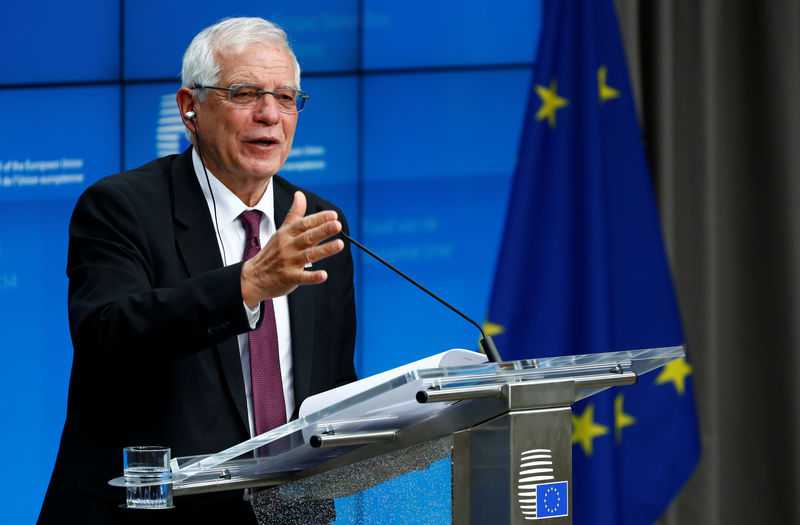Fearing N-proliferation, Europe scrambles to calm Iran tensions
12 January, 2020

EU foreign ministers backed away on Friday from any immediate response to Iran’s decision to intensify its enrichment of uranium, instead repeating their call for Tehran to respect the limits of a 2015 nuclear arms control accord.
Fearing an open conflict between Iran and the United States, EU foreign ministers, joined by NATO Secretary General Jens Stoltenberg, held a rare emergency meeting to call for calm following the Jan. 3 U.S. drone strike that killed an Iranian general and Wednesday’s retaliatory attacks by Iran.
But unlike the United States, which on Friday imposed new economic sanctions on Iran, the Europeans gave Tehran more time to avoid nuclear proliferation at its doorstep rather than begin a process that could lead to a reimposition of U.N sanctions.
“The region cannot afford another war, we call for an urgent de-escalation and maximum restraint,” EU foreign policy chief Josep Borrell told reporters following the meeting.
Borrell said the 28 foreign ministers had agreed to step up their diplomacy to defuse tensions. He gave no specific details beyond reiterating commitment to preserving the nuclear accord and reinforcing support for Iraq.
“We call on Iran to go back to full compliance and we are relying on the IAEA to continue to monitor and verify Iran’s activities,” referring to the U.N. atomic watchdog, the International Atomic Energy Agency.
“Maybe we can’t avoid that it will finally be cancelled.”
Diplomats said that in principle, Berlin, London and Paris have agreed to begin a dispute resolution process under the 2015 deal that could lead to renewed U.N. sanctions on Tehran, but have hesitated on the timing fearing Iran may react badly.
“We were planning to do so, but now it would be seen as an escalatory measure. We still need to focus minds, but it’s probably coming soon,” an EU diplomat said.
Despite its moves, Iran has said the United Nations nuclear watchdog, the IAEA, can continue its on-site inspections at its atomic sites, leaving some room for diplomacy.
The meeting, which diplomats said showed EU unity on supporting the Iran deal despite U.S. President Donald Trump’s call last week for Europe to walk away from it, contrasted with EU foreign ministers’ public comments.
Source: the-japan-news.com
TAG(s):
